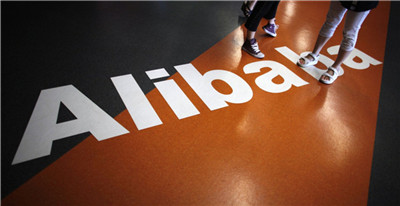Alibaba has launched technology designed to fight fakes, as it looks to battle mounting pressure over the prevalence of counterfeit goods on its websites.
阿里巴巴(Alibaba)推出了旨在打击假货的技术。目前该公司正因旗下网站上假货泛滥而受到越来越大的压力。
The Chinese ecommerce group unveiled new, hard-to-copy symbols that are similar to QR codes — the square, crossword puzzle-like bar codes that can be scanned and read by a smartphone camera — will become part of product labels to ensure authenticity if Alibaba’s online sellers request them.
这家中国电商集团推出了类似二维码(构成一个正方形的条码,能够被智能手机扫描和读取)的新符号,如果阿里巴巴的线上卖家提出要求的话,这种难以被复制的符号将成为商品标签的一部分,以确保商品为正品。

The announcement was designed to woo luxury brands to Alibaba’s marketplaces — L’Oréal and Ferrero Rocher, the chocolatier, already use the technology — and comes as the world’s second-largest internet company by market capitalisation is bedevilled by accusations that merchants on its platforms peddle fake goods.
这一宣布是为了说服奢侈品牌加入阿里巴巴的线上市场——欧莱雅(L’Oréal)和巧克力生产商费列罗(Ferrero Rocher)已经在使用这一技术,而眼下这家世界第二大互联网企业(以市值计)正因其平台上的商家被指售卖假货面临麻烦。
The latest setback came in the form of a lawsuit filed in a New York court by Kering, the Paris-based group whose luxury brands include Gucci and Balenciaga, alleging the Hangzhou-based company was complicit in the sale of counterfeit goods on its sites. Alibaba said it would fight the suit, which it called “baseless” and “wasteful litigation”.
最新的一起挫折是,总部位于巴黎、旗下拥有古驰(Gucci)和巴黎世家(Balenciaga)等奢侈品牌的开云集团(Kering)在纽约起诉阿里巴巴,声称这家总部位于杭州的企业共谋参与了其网站上的假货销售。阿里巴巴称指控“并无任何依据”,“是无用的”,表示将抗辩。
As concern over fakes has mounted in recent months, Alibaba’s share price has dropped a third from a mid-November high of $119 to $79 on May 5, its lowest point since its record-breaking New York listing in September last year.
近月来针对假货的担忧日益增加,阿里巴巴的股价从去年11月中旬每股119美元的最高点,跌至5月5日的79美元,创下去年9月募资规模创纪录的首次公开发行(IPO)以来的最低纪录。
Alibaba’s appointment of a new chief executive on May 7 has driven a partial recovery in the share price.
5月7日,阿里巴巴任命了新的首席执行官,此举推动股价收复部分失地。
In January, criticism by a Chinese regulator that counterfeit goods were ubiquitous on Alibaba’s marketplace sites spooked investors and contributed to a share sell-off that month.
今年1月,中国监管机构批评阿里巴巴的电商网站上充斥着假货,这惊吓了投资者,在一定程度上导致阿里巴巴股票当月遭到抛售。
Worries over fake goods also cost Alibaba business opportunities. This month, global beauty retailer Sephora, part of French luxury goods group LVMH, chose Alibaba’s rival JD.com to host its first online store in China, citing in part concerns over fighting fakes.
针对假货的担忧也让阿里巴巴损失了一些商业机会。本月,法国奢侈品企业路威酩轩集团(LVMH)旗下的国际美妆零售商丝芙兰(Sephora)选择在阿里巴巴的对手京东商城(JD.com)上开设首家在华线上商店,称此举在一定程度上是出于打击假货的考虑。
Global luxury brands such as these are the target of Alibaba’s new “Blue Stars” platform, aimed at helping merchants with marketing, tracing sales, and fighting counterfeit, and which will include the QR-type code technology developed by Visualead, an Israeli start-up.
此类国际奢侈品牌正是阿里巴巴“Blue Stars”新平台瞄准的目标。该平台旨在帮助商家进行市场营销、追踪销售、以及打击假货,以色列初创企业视觉码(Visualead)开发的二维码技术将被应用于这个平台。
Alibaba took a $5m-$10m stake in the company in January. The technology is currently given away to sellers for free, say both companies.
阿里巴巴1月斥资500万至1000万美元入股视觉码。两家公司均表示,该技术眼下免费向卖家提供。













